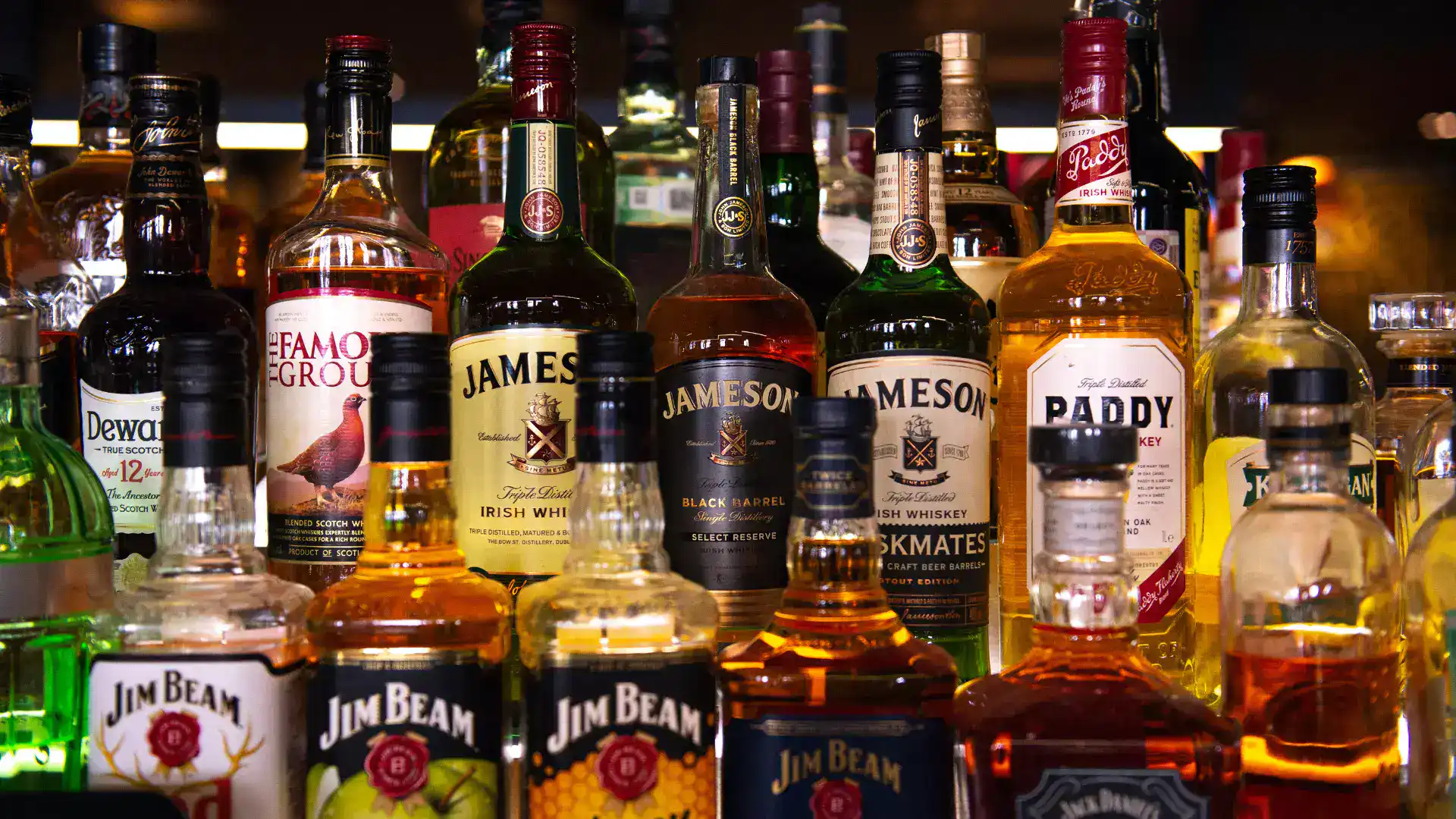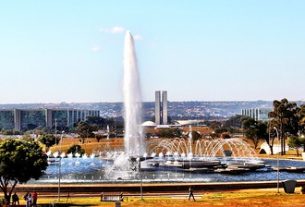– There you are, I’ve been waiting! Come!, she said, pointing to an alley that looked like it was straight out of a scene from Aladdin.
– What do you like to do in Brazil?
The middle-aged man with the horseshoe mustache was sitting next to us in the Shiraz hotel restaurant where we were having breakfast. In Iran, we got used to people’s curiosity, who don’t see many foreigners, and he started to start a conversation as soon as he realized we spoke another language.
The remaining three chairs were occupied by his wife and two teenage children who listened to everything but did not engage in the conversation.
– Brazil is very happy! We like going out with friends, football, going to the beach, carnival, samba, going to the bar…
After four months away from home, we were already used to the generic package of pleasing foreigners. The dialogue was followed by a short silence.
– Pub? – he asked. We looked at each other, afraid we had offended a stricter Muslim. – Do you usually drink in Brazil?
“Often,” I replied, hesitantly. Had we stepped into a cultural minefield?
He stood up, and with an air of mysterious formality, said:
– Have a good day, I’ll see you later.
For us, the farewell sounded like a “goodbye and blessings”, but there was nothing we could do to alleviate the anthropological faux pas. What’s more, we had several mosques, Persian gardens and fortresses to visit.
We only returned to the hotel in the late afternoon. The mustachioed man with the sparkling eyes was standing in front of the wooden gate decorated with colorful stained glass that led to the reception. Restless, he walked around the street, and seemed to be happy when he saw us. I could tell he was hiding something inside his brown jacket with a suspense worthy of film noir.
– There you are, I’ve been waiting! Come!, she said, pointing to an alley that looked like it was straight out of a scene from Aladdin.
We looked at each other, not really knowing what to do. He noticed our doubt and came closer, moving his arm away from his jacket to reveal the neck of a glass bottle.
– I got it for us – he said, as if, instead of beer, he was showing us a packet of cocaine.
We walk through a tangle of streets to a courtyard surrounded by a group of houses in a condominium. We entered one of them and, like an Iranian spy plotting against sobriety, he locked the door and closed the curtains. Only then did he take out the bottle he hid under his jacket.
– I got it from a friend who makes it at his house – he said, triumphantly.
The packaging was a non-alcoholic beer widely sold in the country’s cool bars, but the deformed lid indicated that it had been opened before and closed again.
Read too: How to plan a trip to Iran
– We also know how to have fun, you know?
He distributed the contents into three glasses and called his youngest son, twelve years old, to help with the conversation. The boy, who was a gamer and streamer, spoke the best English in the family and was our interpreter.
The drink tasted like the lemon soda of the 0% beers consumed in Iran, mixed with some type of homemade alcohol. You can make vodka at home with a handful of potatoes and a pressure cooker, but it is not recommended to try it alone.
When not done correctly, homemade alcohol can cause permanent blindness and even death. I tried to forget this information and the fact that I was committing a crime punishable by whipping as I took my first sip of the drink.
We talked about our cultures until we finished the bottle. He wanted to know about Carnival and Pelourinho, and told us that he had already watched the video that Michael Jackson recorded with Olodum. We asked about parties and drinking in Iran, badmouthed the government and deepened our alcoholic diplomacy.
But after a frustrated call to the supposed supplier of a new bottle of beer, this time a smuggled Heineken, our host burst into tears listening to Michael Jackson’s Earth Song.
We don’t know if it was the alcohol, the music or the absence of the promised nightcap. But when the bar closes, it’s a sign that it’s time to go home.
Read too: Qashqai people: what is life like for Iran’s last nomads?
Why is drinking alcohol prohibited in Iran?
In Iran, the prohibition of alcohol consumption is rooted in religious and cultural laws. In Islam, the consumption of alcohol is considered haram, that is, prohibited, due to its intoxicating effects and the potential to affect the behavior of those who consume it. I explained this better here.
After the 1979 Islamic Revolution, Iran adopted a theocratic system of government based on the principles of Shia Islam. With the implementation of Sharia law, Islamic rules became the basis for the country’s civil and criminal laws.
Under Sharia, the consumption, sale and production of alcoholic beverages are strictly prohibited and are subject to severe legal penalties.
What is the penalty for drinking alcohol in Iran?
Penalties for alcohol drinkers in Iran vary depending on the situation, but may include:
- Whipping: One of the most common punishments for drinking alcohol in Iran is whipping. Iranian law stipulates that offenders can receive up to 80 lashes. This punishment is both physical punishment and a means of publicly discouraging alcohol consumption.
- Fine or Prison: In some cases, a fine or prison sentence may be imposed, especially if the individual is a repeat offender or is involved in the distribution or production of alcohol.
- Aggravation of the Sentence in Specific Cases: If alcohol consumption leads to other acts considered illegal or immoral under Iranian law, the penalties may be even more severe. This includes situations where alcohol consumption results in public disturbances, accidents or violence.
It is important to highlight that these penalties are not just theoretical, but are actually applied and have a significant effect on Iranian society.
How do Iranians manage to buy alcoholic drinks?
Despite a strict ban on the consumption, sale and production of alcohol in Iran, there are reports that Iranians are still able to access alcoholic beverages through illegal and clandestine means.
This access is done with great discretion, due to the severe penalties imposed by Iranian law. Here are some ways Iranians are able to purchase alcohol:
- Black Market and Smuggling: There is a black market for alcohol in Iran, where imported or smuggled drinks are secretly sold from Armenia or Iraq. This market operates very discreetly, and transactions are usually done through a trusted network of contacts to avoid detection by authorities.
- Home Production: Some people resort to home production of alcoholic beverages, such as Arak (a type of distilled beverage). Although this practice is risky and illegal, it is a way to get around the ban. However, the quality and safety of these homemade drinks can be questionable, posing health risks.
- Minority Communities: In Iran, some minority religious communities, such as Christian Armenians and Assyrians, have limited permission to produce and consume alcohol within their communities. In some cases, individuals from other communities may attempt to access alcohol through these channels, although this is also risky and technically illegal.
- Social Media and Word of Mouth: Information about how and where to purchase alcohol often circulates through social networks and word of mouth, within trusted groups. Discretion is paramount in these transactions to avoid attention from authorities.
Although there are ways to get around Iran’s alcohol ban, these practices are illegal and risky. People involved in these acts face the risk of severe legal penalties if caught by authorities.
Sign up for our newsletter

Sign up for our newsletter and stay up to date with exclusive news
that can transform your routine!
Warning: Undefined array key "title" in /home/storelat/public_html/wp-content/plugins/link-whisper-premium/templates/frontend/related-posts.php on line 12
Warning: Undefined array key "title_tag" in /home/storelat/public_html/wp-content/plugins/link-whisper-premium/templates/frontend/related-posts.php on line 13




